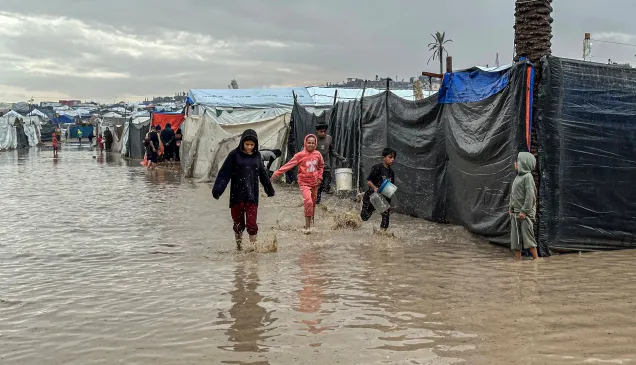Yousef and his wife Halema are both 73 years old. They have two sons detained in Israel. For the past 30 years, they have been able to visit their sons through the ICRC family visit programme.
Katanah, West Bank, April 2017.
Family visits: An emotional lifeline
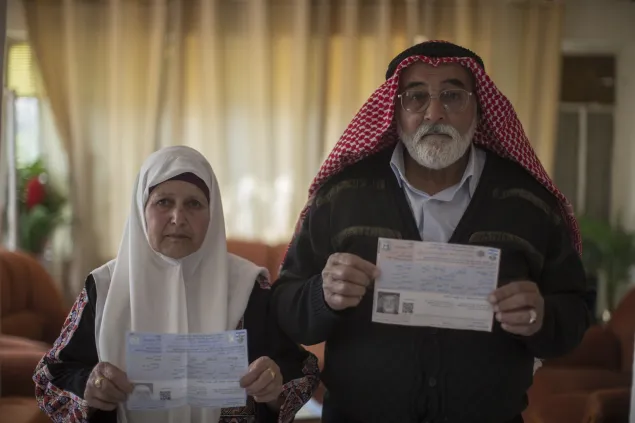
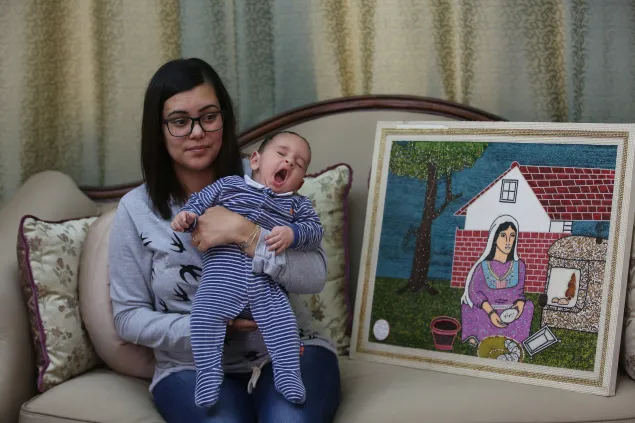
Falastine lives in the West Bank city of Jenin with her baby boy. Her husband Samer is detained in Israel. To visit him, Falastine needs to apply for a permit through the ICRC. If approved, she can visit her husband through ICRC’s family visit programme.
Jenin, West Bank, April 2017.
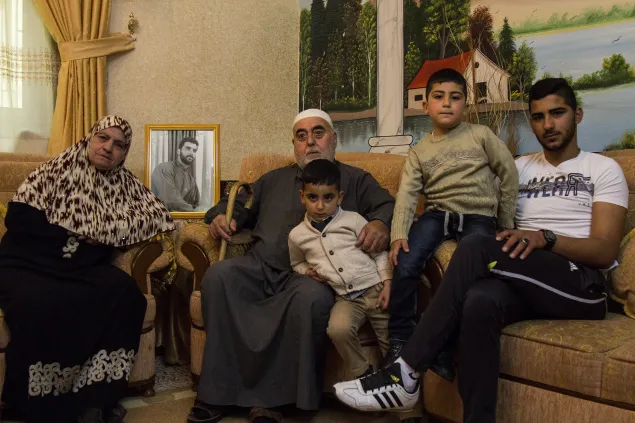
Kheiri Skafi was born in 1942. He has five sons and eight daughters. In 2000, one of his sons was sentenced to 20 years in prison. Since then, his entire family – which now includes his detained son’s four boys and wife – have been part of the ICRC’s family visit programme.
Hebron, West Bank, April 2017.
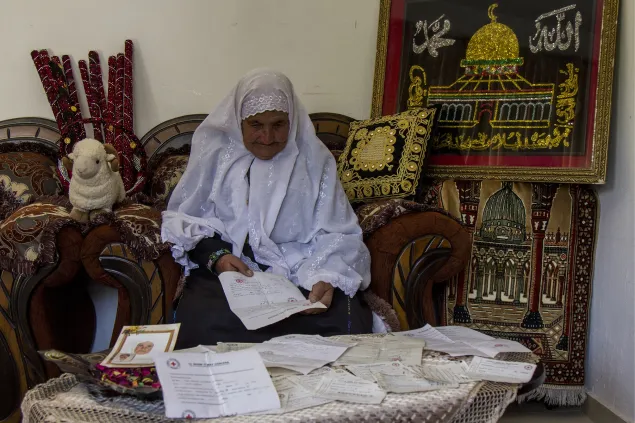
Ghozlan is 86 years old. She still keeps all the permits she had to obtain in the 1980s and 1990s to visit her son, who was detained at the time. “I visited my son through the ICRC’s family visit programme for more than 10 years. I still keep all his messages. They are part of my memories.”
Hebron, West Bank, April 2017.
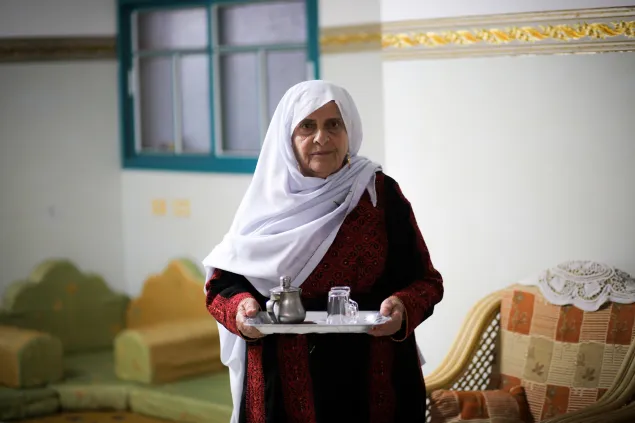
Um Ibrahim, a 77-year-old widow, has 14 children. She came to know of the ICRC in 1983 when her son was detained for a year and a half. Throughout that period, she depended on the ICRC’s family visit programme to see him. She was also able to exchange messages and photos with her son through the ICRC delegates.
Camp Jabalia - North Gaza, April 2017.
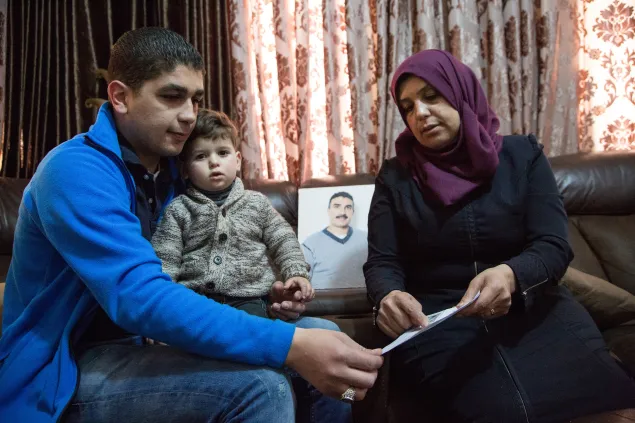
Mohammed was born in 1993. He had not yet turned five when his father was detained. Along with his mother, he visits his father through ICRC’s family visit programme.
Al-Aizariya, Jerusalem, April 2017.
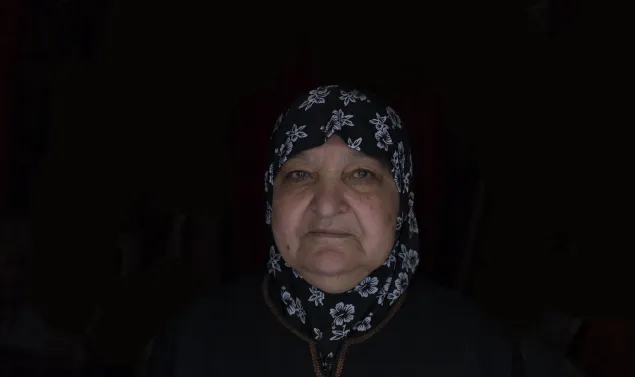
Latifa lives in Qalandiya, West Bank and has seven children. Two of her sons are detained. For the last couple of years, Latifa has been able to see them, with the support of ICRC’s family visit programme.
Qalandiya, West Bank, April 2017.
Family visits to Palestinian detainees in Israeli places of detention are an emotional lifeline not just for those behind bars, but also for the relatives left behind.
Since 1968, the ICRC has been running and administering a family visit programme that enables persons living in the Gaza Strip, West Bank, Jerusalem and occupied Golan, to visit their relatives in Israeli detention facilities.
Israel detains Palestinians within its territory – but not within the occupied territory as required by the law of occupation. As a result, visiting family members have to obtain special permits, endure long waiting intervals when crossing terminals and checkpoints and undertake long trips to see their loved ones.
This photo gallery introduces us to some of the Palestinian detainees' families who have used the ICRC's family visit programme.



